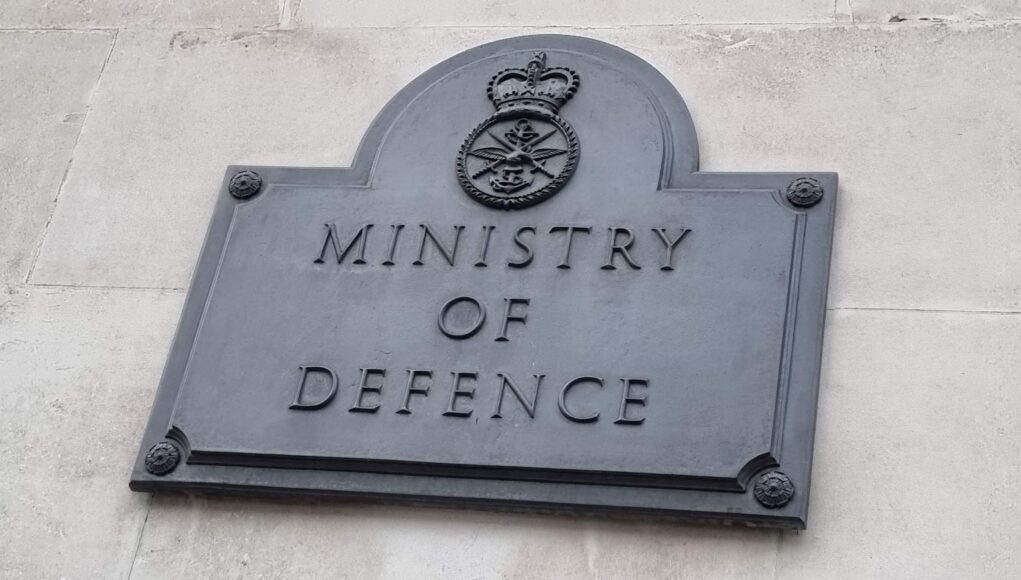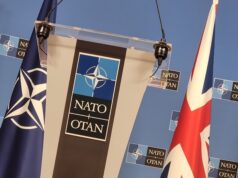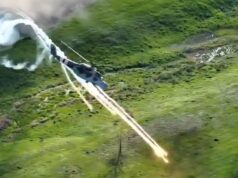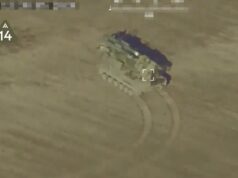The Ministry of Defence has issued a Pre-Procurement Notice through the Contracts Finder portal, calling for an Industry Request For Information (RFI) regarding minefield breaching systems aimed at enhancing the operational capabilities of the Field Army.
This request focuses on gathering detailed information and proposals for systems capable of effectively breaching minefields to support Field Army manoeuvres.
The notice details the need for “mechanical breach capability” and “mechanical breaching solutions”. The intention is to procure systems that can significantly reduce the threat posed by such obstacles, facilitating safer and more effective deployment of forces.
In the notice, the MoD outlines specific user requirements and assumptions for the sought-after systems. It states, “UK Land Forces require a capability to reduce explosive barriers prior to employment of mechanical breach capability,“.
Detailed performance expectations include:
- “Clearance of EO 60-100% effective within 4.5m width – reducing to 40-50% beyond 4.5m boundaries.“
- “>200m length of reduced/cleared route at a time.“
- “> 4.5m width of reduced/cleared route (note current is 7.3m).“
Additionally, the notice states:
“Does not require Service Personnel to be in open forward in Direct Fire Zone – (assume operate closed down from AFV or controlled remotely).”
This suggests a preference for systems that can be operated remotely or from within armoured vehicles, minimising risk to personnel.
While the notice does not provide specific details on the duration or the financial value of the anticipated contract, it mentions that the “Contract is suitable for SMEs,” encouraging small and medium-sized enterprises to engage in the procurement process.














Mmmm more Trojans🤔?
Where’s Hobart when you need him or will we be getting off the shelf mine clearance explosives
Would be really interesting to see what some of those military/engineering minds would make of the modern battlefield and technology. They’d probably get really excited at all the possibilities and then shoot themselves in frustration when they find out how long it takes to actually get anything done, and how much it costs to do so…
I’d imagine something like the MICLIC would do the job- not much need for it to be OTS as they’re pretty simple. I think the USMC use one that’s a trailer towed behind an MRAP or similar.
Miclic is tried and tested Whitehall should look into it but then their excuse would be “It does what it is designed too do but the delivery vehicle is left hand drive so we intend on conducting R and D at a cost to the taxpayer
We have had our own version of MICLIC in service for years – we are on at least second generation. Giant Viper was developed in the 1950s and its sucessor, Python, was fielded from c.2010.
Ah, excellent, every day is a learning day! Without knowing a lot about the platform, I’d assume a development of that on an unmanned system would be the logical way forward? I’ve seen a lot of videos of Ukrainian and Russian line charge launch vehicles being hit, and I wouldn’t want to be in one 200 m from the front line…
I have not seen those videos, but everything on the battle field is a target. I think a line-clearing system would be a good candidate for an unmanned system, and this article alludes to that as an option.
Agreed, if we’re going to start somewhere then “front of the line” engineering / clearing vehicles make sense in terms of removing a human crew. I guess we’ve already started on that principle with the unmanned mine systems.
I thought Sadiq Khan has solved this, non ULEZ compliant vehicles!! point the vehile in the general direction of the mine field, place brick on the accelerator. 😀. Of course some may like Sadiq him self to ride shot gun 😀
The latter part was already in mind before finishing the comment.
You do realise it was a Conservative plan to introduce ULEZ (boris as mayor of london) and that boris pressured for its expansion as PM (he linked budget release to it).
I kinda feel sorry for Khan that he gets all the blame when it wasn’t all on him.
If his a good mayor though, no idea.
Really don’t care I don’t support labour or tories both unfit to govern imo
Interesting that they’re only looking for a high-certainty clearance path of 4.5 m- what’s the width of Ch3..? Also, longer than 200 m, that’s twice as long as the US military’s current system. Clearly the deeper belts of minefields in Ukraine have been noted.
I’m guessing that a UGV with some kind of MICLIC launcher and charge would be the go-to?
200m is too long/heavy to MICLIC I think. You almost need an air dropped system or something that can sprawl it’self out on the ground
I don’t necessarily disagree- just reading off the brief. Maybe that’s the reason for the narrower clearance path, to balance distance and weight?
I wonder what it is that they don’t like about the current Python system? It seems to meet the lenth & width guidelines which would leave efficacy, cost etc.
Ideally a replacement for Python combined with a Pearson Mine Plough fit on a vehicle after a Python deployment. Pearson is a UK world leader in mine ploughs and breaching etc…That just got sold to Rafael…
go figure…
A very large massively armoured combat bull dozer? With flail in front?
I can only imagine they want an alternative to Python. I think the starting point for these things a lot of the time should be look at the IDF. Love them or hate them, they have been actively engaged in warfare at varying levels everyday since their conception. They also put a high value on their troops lives. So maybe KARPET is worth a look.
Russia has a good system
Is that the thousands of troops and cheap 1950/1960s light armoured vehicles they pour into combat?
Human mine clearance.